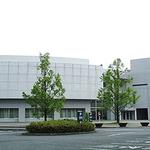Tokyo Denki University (TDU) Introduction
Overview
Tokyo Denki University is a well-known private science and engineering university located in Tokyo, Japan, founded in 1907. The school is known for its high-quality education and rich academic resources, and is one of Japan's famous science and engineering universities. Tokyo Denki University is committed to cultivating talents with high professional technical capabilities and innovative spirit to contribute to the development of society. The school enjoys a high reputation in electrical engineering, mechanical engineering, information and communication engineering and other fields.
Campuses
Tokyo Electric University has two main campuses:
Senju Campus: 12-1 Senju Asahi-cho, Adachi-ku, Tokyo
Hakusan Campus: 1-20-1 Hakusan, Bunkyo-ku, Tokyo
Educational Philosophy
Tokyo Electric University adheres to the educational philosophy of "contributing to society through science and technology" and emphasizes the cultivation of students' independent thinking and practical abilities. The school is committed to cultivating high-quality talents with professional knowledge and practical abilities through a comprehensive education system to contribute to the development of society.
Disciplines and Majors
Tokyo Electric University has multiple faculties and graduate schools covering a wide range of fields:
Faculty of Engineering
Electrical Engineering: Learn basic theories and practical methods of electrical engineering, power systems, etc., and cultivate professionals who can work in power companies, electronic equipment manufacturing and other fields.
Department of Information and Communication Engineering: Learn basic theories and practical methods of information and communication, network technology, etc., and cultivate professionals who can work in telecommunications companies, Internet companies and other fields.
Department of Electronic Engineering: Learn basic theories and practical methods of electronic engineering, semiconductor technology, etc., and cultivate professionals who can work in electronic equipment manufacturing, semiconductor industry and other fields.
Department of Mechanical Engineering: Learn basic theories and practical methods of mechanical engineering, materials science, etc., and cultivate professionals who can work in manufacturing, R&D institutions and other fields.
Department of Environmental Materials Engineering: Learn basic theories and practical methods of environmental science, materials science, etc., and cultivate professionals who can work in environmental protection, materials science and other fields.
Department of Information Science and Engineering
Department of Information System: Learn basic theories and practical methods of information systems, software engineering, etc., and cultivate professionals who can work in IT companies, scientific research institutions and other fields.
Department of Media Information: Learn basic theories and practical methods of media technology, digital media, etc., and cultivate professionals who can work in media institutions, advertising companies and other fields.
Department of Life Sciences
Life Sciences: Students learn basic theories and practical methods of life sciences and biotechnology, and cultivate professionals who can work in biotechnology companies, pharmaceutical research and development, and other fields.
Department of Future Sciences
Advanced Sciences: Students learn basic theories and practical methods of advanced science and technology, new materials, and other fields, and cultivate professionals who can work in scientific research institutions, high-tech enterprises, and other fields.
Graduate School of Engineering (Master and Doctoral Programs)
Provide advanced research and education in the fields of electrical engineering, mechanical engineering, information and communication engineering, and other fields.
Featured Courses
Electrical Engineering: Students learn basic theories and practical methods of electrical engineering, power systems, control engineering, and other fields.
Information and Communication Engineering: Students learn basic theories and practical methods of information and communication, network technology, data communication, and other fields.
Electronic Engineering: Students learn basic theories and practical methods of electronic engineering, semiconductor technology, microelectronics, and other fields.
Mechanical Engineering: Students learn basic theories and practical methods of mechanical engineering, materials science, design and manufacturing, and other fields.
Environmental Materials Engineering: Students learn basic theories and practical methods of environmental science, materials science, environmental engineering, and other fields.
Information System Discipline: Learn basic theories and practical methods such as information systems, software engineering, and database technology.
Media Information Discipline: Learn basic theories and practical methods such as media technology, digital media, and multimedia design.
Life Science Discipline: Learn basic theories and practical methods such as life sciences, biotechnology, and genetics.
Advanced Science Discipline: Learn basic theories and practical methods such as advanced science and technology, new materials, and nanotechnology.
Practical Teaching
Tokyo Electric University attaches great importance to practical teaching, and has advanced laboratories and practice bases, providing students with rich practical teaching resources. The school has established cooperative relationships with many companies and research institutions, providing students with rich internship and practice opportunities. The school also has practical platforms such as simulation laboratories, studios, and practice bases, providing students with a platform for practical operations.
International Exchange
Tokyo Electric University actively participates in international exchange projects, and has established cooperative relationships with universities in many countries to provide students with opportunities for overseas study and exchange. The school has an International Student Office to provide comprehensive support and services for international students. The school also offers English intensive courses and international exchange student programs to help students improve their English and international competitiveness.
Employment situation
Tokyo Electro-Tech University performs well in terms of employment rate. According to the latest statistics, the employment rate of graduates is relatively high. The school has a career guidance center to provide students with employment consultation, resume writing guidance and interview skills training to help students find employment smoothly.
Costs
Admission fee: about 200,000 yen
Tuition fee: about 700,000 to 800,000 yen per year (depending on different departments and subjects)
The specific fees may vary. It is recommended to consult the school directly for the latest information.
Campus
The campus of Tokyo Electro-Tech University has a beautiful environment and complete facilities, including modern teaching buildings, laboratories, libraries and sports facilities. The school also has student dormitories to provide convenient living conditions for out-of-town students.
Contact Information
Tel: +81-3-3802-3111
Fax: +81-3-3802-3112
Email: info@tdu.ac.jp
Other Information
Internship Opportunities: The school has established cooperative relationships with many companies and research institutions, providing students with abundant internship and practice opportunities.
Employment Support: The school has a career guidance center to provide students with employment consultation, resume writing guidance and interview skills training to help students find employment smoothly.
Scholarship System: The school has a variety of scholarship systems to help students reduce their financial burden.
-
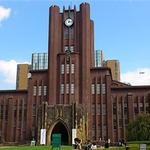
The University of Tokyo
-

Kyoto University
-
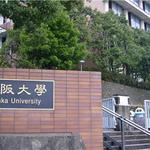
Osaka University
-

Waseda University
-

Hitotsubashi University
-
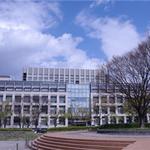
Nagoya University
-
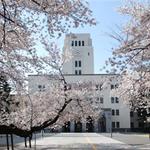
Tokyo Institute of Technology
-
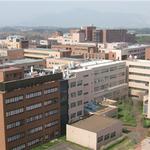
University of Tsukuba
-

Keio University
-
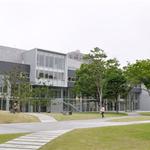
Tohoku University
-

Mesoamerican University
-

Istmo University
-

Mariano Galvez University of Guatemala
-

Regional University of Guatemala
-

Galileo University
-

Francisco Marroquín University
-

Rafael Landívar University
-

University of the Valley of Guatemala
-

University of San Carlos of Guatemala
-

Technological Institute of Tlaxcala Plateau
-

Golfo University
-

Technological University of South Sonora
-

Technological University of Huejotzingo
-

Tizimín Institute of Technology
-

Chilpancingo Institute of Technology

